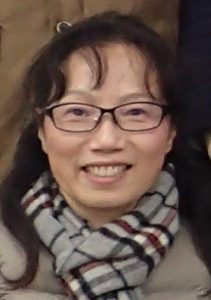「生物資源経済学専攻英語講義シリーズ」(“Division of Natural Resource Economics English Lecture Series”)の第10回として、昨年7月から国際交流基金の日本研究フェローとして本学で研究活動をされている国立台湾大学のYu-Chan Chiu先生による特別セミナーを下記の通り開催します。
なお、本セミナーは、参加者を少人数(10人程度)と想定のうえ、リモートではなく対面で実施します。そのため、会場の机・椅子の配置変えも含めたコロナ感染防止策を講じる必要もあり、事前に参加人数を把握したいと考えております。つきましては、参加を希望される方は事前に黒田までメールでご連絡いただきますようお願いいたします(メールアドレスは下記)。また、参加者にはマスク着用をお願いします。
[題目]
Everyday Strategies for Handling Food Safety Concerns: A Qualitative Study in Taiwan
[講師]
Dr. Yu-Chan Chiu
Associate Professor, Department of Bio-Industry Communication and Development, College of Bio-Resources and Agriculture, National Taiwan University
[要旨]
Food safety has become an issue of considerable significance and consequence around the world due to a variety of events. The past food-related scares have, despite their different causes, resulted in increased uncertainty and concern among the general public in many countries regarding daily food consumption. Taiwanese people are among those who have experienced such fears. Food scandal has been a recurring theme in Taiwanese society for more than three decades. A wide range of foods have been found unsafe: rice, starch, eggs, cooking oil, tea, tofu, and so forth. Past research has provided evidence of the important role that trust plays in people’s food consumption decisions. This study examines the reasons people distrust food production systems and how they conceptualize and handle food-related risks in everyday life in a context in which food scandals have occurred frequently. In-depth interviews were conducted with 39 married Taiwanese women. Our findings indicated that the women believed that collusion commonly occurs between business and government entities and that such collusion frequently leads to food scandals. However, despite their distrust in the food system and suspicion towards the government, the women generally still relied on food labels and certifications when making food purchasing decisions. These “in-between” strategies were formed by their knowledge and experiences of day-to-day living in Taiwan, and while the strategies may seem somewhat self-contradictory, they can be understood as empowering people to protect themselves and their families in circumstances of general distrust and helplessness.
[日時]
7月16日(木) 10:30- 12:00
[会場]
農学部総合館 E-217 (専攻第1会議室)
[言語]
英語
[連絡先]
黒田 真(教務補佐員):kuroda.makoto.6a@kyoto-u.ac.jp



